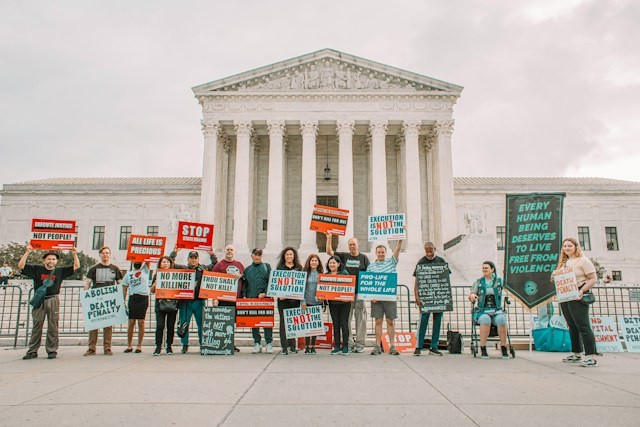
In an unprecedented move, the U.S. Supreme Court recently cleared the way for the nation's first execution using nitrogen gas. The method will be employed to enforce the death penalty on Kenneth Smith, who survived a botched lethal injection four years ago. This historic legal maneuver sparked a comprehensive review of death penalty procedures. The use of nitrogen gas for execution is part of this remarkable shift in the way capital punishment is administered.
Nitrogen Gas Execution: Is It More Humane?
The Supreme Court rejected Smith's plea to postpone his execution, asserting that a second attempt would infringe on his Eighth Amendment rights, concerned with guarding against cruel and unusual punishment. The denial of his appeal symbolizes the dawning of a new era in capital punishment within the country.
A significant number of Supreme Court justices in 2022 favored Smith's first attempt at execution. However, the method chosen to deprive Smith of his life is known as nitrogen hypoxia. Smith's head will be encased in a mask linked to a nitrogen cylinder. The sole purpose of such an approach is to deprive the person of oxygen. As intriguing as this new process may sound, it also raises serious questions: Will this new method stave off instances of botched executions? Is it genuinely more humane?
Amid Failures, Introducing Nitrogen Hypoxia
Smith's failed execution attempt transpired to be the third consecutive time where problems or delays were encountered during the establishment of an intravenous line for a scheduled lethal injection. Following these issues, a comprehensive review of the state's execution procedures was initiated. This review led to the acquisition of new equipment and added an increased pool of available medical personnel for executions.
ALSO READ: Appeals Court Validates New Petrochemical Plant in Louisiana's Cancer-Prone Region, Increasing Risk
Second Execution Attempt - A Legal Dilemma or a Necessary Measure?
In May 2023, Smith challenged the second execution attempt, arguing that it would defy the Eighth Amendment. His previous encounter with the execution process inflicted physical and mental exhaustion on him, with symptoms similar to post-traumatic stress disorder. However, his appeal was dismissed by lower courts. His legal defense now urges the Supreme Court's intervention, labeling the nitrogen-gas protocol uncharted territory.
Execution Scheduled, Awaiting the Inevitable
Smith's execution is set to occur within thirty hours later this week. Despite international warnings against the planned execution, the wheels are already in motion. Smith's case highlights the increasingly intricate reality of lethal executions in the U.S., a landscape further complicated due to difficulties in procuring drugs employed in traditional lethal injection protocols. As a result, alternative gas-based procedures are being explored.
Why Legal Representation Matters
Questions surrounding the future of capital punishment procedures raise the importance of legal representation. Regardless of the circumstances, it is essential for everyone, whether on trial or not, to have an experienced lawyer defending your rights and providing guidance. Especially in moments involving first-ever legal scenarios such as these, professional advice from an experienced lawyer can make a significant difference.




